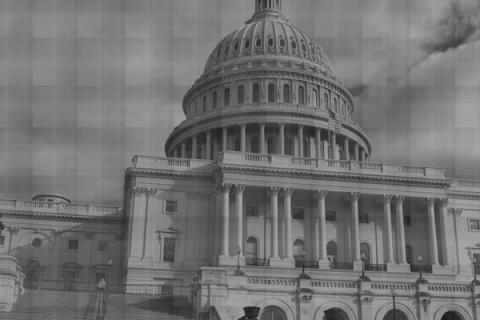 Desk in California Senate // Credit: Wallentine via Shutterstock.com
Desk in California Senate // Credit: Wallentine via Shutterstock.com
Following a series of votes Wednesday and earlier this week, Senate bills 2, 3, 27, and 52 are on their way out of the California Senate and into the Assembly. Each measure would amend the Political Reform Act of 1974 in different ways.
Support for SB 52, also called the "DISCLOSE Act" -- not to be confused with Chris Van Hollen (D-Maryland) and Chuck Schumer's (D-New York) efforts at the national level -- has followed a concerted public awareness effort from proponents and its sponsors, Sens. Jerry Hill (D-San Mateo) and Mark Leno (D-San Francisco).
The bill passed Wednesday after a 28-11 vote.
If signed into law, SB 52 would require the top three donors (over $10,000 for statewide positions and $2,000 for local races) of a political advertisement be openly identified either in the ad itself or on the campaign’s website. It would also compel disclosure for 'issue advocacy' advertisements, which may not directly support/condemn a candidate running for office, but can potentially influence voter choice.
In a release, Leno said:
“With more information at their fingertips, voters will be more encouraged to vote and can make better informed decisions at the ballot box.”
Currently, special interests attempting to sway voters one way or another can use 501(c) nonprofit organizations to dodge disclosure requirements. An instance of which was uncovered by the California Fair Political Practices Commission shortly after the last election.
Although the slew of California campaign finance reform bills have been short on Republican support, Anthony Cannella (R-Ceres) offered his endorsement of SB 52, stating:
“The DISCLOSURE Act provides voters with a new level of transparency in campaign finance disclosure that I whole-heartedly support. I want to commend Senator Leno for bringing forth this legislation and am proud to support it.”
SB 2 and 3 were also passed Wednesday. Sponsored by Sens. Leland Yee (D-San Francisco) and Ted Lieu (D-Torrance), the "Sunshine in Campaigns Act" (which consists of both bills) outlines a similar 'stand by your ad' provision as in SB 52. However, candidates would be required to verbally approve any coordinated elections communications. The act also increases penalties for failing to disclose properly along with several other provisions.
Lastly, Senator Lou Correa's (D-Santa Ana) SB 27 passed 28-8 on Tuesday. Introduced in December alongside SB 52 to combat the same problem of 'dark money' in California elections, the bill would require disclosure of individuals behind donations to political campaigns even if they come from 501(c) nonprofit groups.
The strong Democratic majority in the Assembly should hold a bright future for SB 2, 3, 27, and 52. The California Fair Political Practices Commission has been supportive of such efforts as well.
